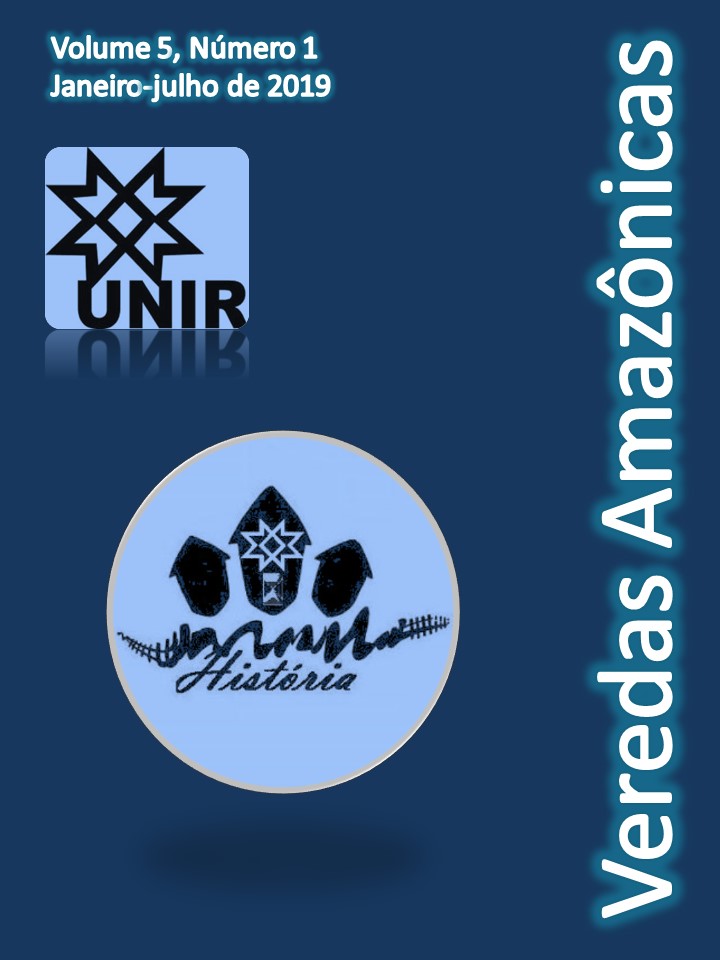A OCUPAÇÃO NEOCOLONIAL DA BACIA DO RIO MADEIRA DURANTE O PRIMEIRO CICLO DA BORRACHA E A REAÇÃO DA POPULAÇÃO INDÍGENA
Resumo
O presente artigo trada da ocupação neocolonial e das situações de contato com a sociedade indígena da região do rio Madeira durante o Primeiro Ciclo da Borracha 1850-1912. A expansão da atividade gumífera, coma consequente ocupação da terra para a constituição da unidade rural especializada no extrativismo da borracha, o seringal, ocasionou o contado e a fixação permanente do neocolono. Nos territórios indígenas conquistados a abertura dos seringais significou a necessidade da eliminação ou do afastamento dos seus antigos ocupantes. A partir das perdas ocasionadas pela invasão de seus territórios, a sociedade indígena reagiu ativa e efetivamente contra o avanço da sociedade nacional ou neocolonial na região do rio Madeira através, sobretudo. Essa reação se dava sob duas formas básicas: recusa e colaboração. A recusa era a reação violenta ao processo de ocupação, principalmente, pelos conflitos provocados por ataques, como assaltos, saques, e mortes aos neocolonizadores. A colaboração ocorria sobretudo nas missões religiosas e nas atividades da agricultura, extrativismo e navegação. Esses fatos nos revelam a importância de se buscar um olhar sobre a história da ocupação neocolonial da região do rio Madeira tendo como destaque os povos indígenas como importantes atores históricos. Assim como os neocolonizadores os índios participaram ativamente desse processo.
This article presents the neocolonial occupation and situations of contact with the indigenous society of the Madeira River region during the first cycle of rubber 1850-1912. The expansion of the gumiferous activity, with consequent occupation of the land for the constitution of the rural unit specializing in the extraction of rubber, the seringal, caused the counting and permanent fixation of the neocolon. In the conquered indigenous territories the opening of the rubber plantations meant the necessity of eliminating or removing their former occupants. From the losses caused by the invasion of their territories, the indigenous society reacted actively and effectively against the advance of the national or neocolonial society in the Madeira River region through, above all. This reaction took place in two basic forms: refusal and collaboration. The refusal was the violent reaction to the occupation process, mainly by the conflicts provoked by attacks, like robberies, looting, and deaths to the neo-colonizers. The collaboration took place mainly in religious missions and in the activities of agriculture, extractivism and navigation. These facts reveal to us the importance of looking at the history of the neocolonial occupation of the Madeira River region, highlighting the indigenous peoples as important historical actors. Like the neo-colonizers, the Indians actively participated in this process.


